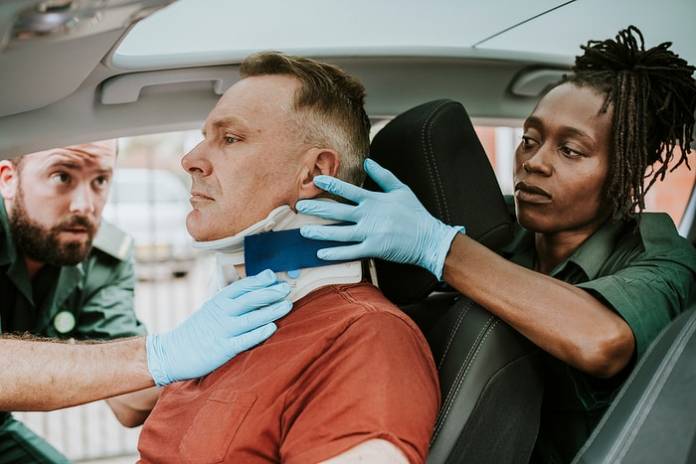
Car accidents are prevalent. Since there are tens of millions of vehicles on the road, it makes sense that there should tens of thousands of accidents every day. The good news is that most of them are not very serious, but there are always those that are.
Serious car accident injuries can change where your life goes. You can sometimes overcome them with physical therapy or surgery. There are some, though, that you will feel the impact of every day for as long as you live.
Here are five of the most severe car accident results of which you should be aware of.
Back Injuries
Serious car accidents sometimes cause devastating injuries. For instance, you might sustain a back injury from:
- Getting T-boned by another car can cause one
- Being hit head-on by a vehicle can as well
- A fender bender that knocks you into an intersection can cause one
You can sustain a broken back, or you might suffer soft-tissue trauma. The real problem with back injuries is that they can be among the most difficult from which to recover.
As advanced as medical science is, in certain ways, the back remains a mystery. Even if you survive, you might have to deal with pain for the rest of your life. Sometimes, pain meds, yoga, or other exercises can help, but they’re far from perfect.
In some instances, the most severe back injuries can even cause paralysis. If that happens, you might find yourself wheelchair-bound.
Traumatic Brain Injuries
Car accidents can also cause traumatic brain injuries. That might include:
- Intracranial bleeding
- Brain swelling
If your brain is swelling inside the skull, doctors might have to go in to relieve the pressure. These types of injuries are frequently life-threatening.
If a brain injury is severe enough, you might lapse into a coma. If that happens, there is no telling how long it will be until you wake up, or even if you will. Comas are another area where there is much that medical science still does not know.
Concussions
A concussion occurs when a sudden, violent impact takes place. If a car hits your vehicle, that’s a genuine possibility, regardless of whether it was a rear, front, or side impact. The faster your car was going, and the faster their car was going, the more likely there will be catastrophic damage to both bodies and vehicles.
People usually recover from concussions. However, the road back can be difficult. You can expect headaches, dizziness, trouble sleeping, fatigue, and confusion.
In some extreme cases, you might even become depressed or irritable. If you seem to be lashing out at your loved ones following a concussion diagnosis, talk to a doctor about it and see if they can help you.
Broken Bones
Broken bones from car accidents are also common. Depending on the impact, you might have to deal with multiple breaks. Hopefully, the damage will be such that skilled surgeons can set the bones, and they will heal to the point that you’re back to your old self again.
If you suffered multiple severe breaks, the recovery time could easily be many months or even years in the most dramatic cases. You may spend time in casts or walking boots. You might need to learn how to use crutches for a time.
It might frustrate you how long the recovery takes, but if you can come out on the other side and be close to what you once were, your patience will pay off.
Internal Organ Damage
Internal organ damage is another unfortunate car accident reality. A punctured lung or damage to the kidney, spleen, or other vital organs can be life-threatening.
The real risk is if you don’t get the medical help you need as soon as possible after the accident. You have a much higher survival probability if you stay and let an ambulance take you to a hospital afterward. If you try to leave the scene, it is that delay that can cost you your life.
While these are all serious injuries, you have a much better chance to avoid car accidents if you always follow the road rules, both written and unwritten. Be courteous to the other drivers. Drive defensively.
Merge when it’s your turn, and don’t tailgate. Don’t speed when you’re on the highway or in residential areas. Above all else, don’t ever drive if you’ve been drinking or using recreational drugs.
If you do all of those things, hopefully, you will never sustain one of the injuries that we’ve described.











